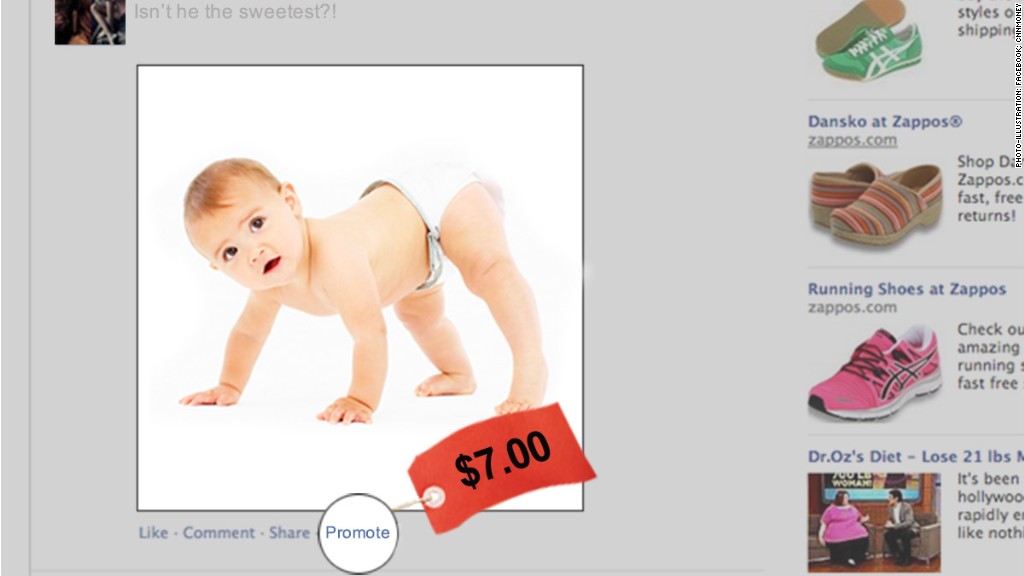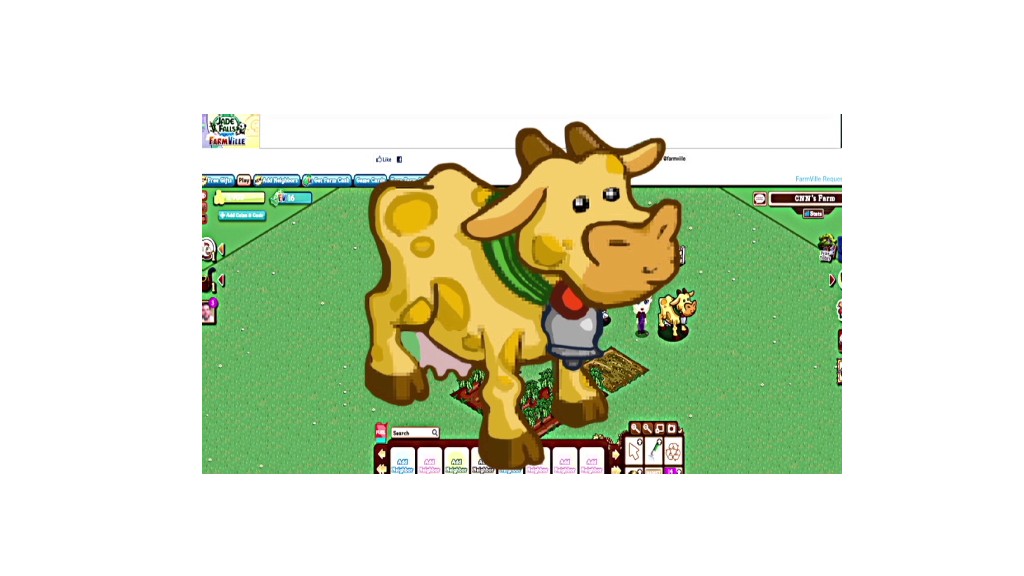
Is that cat photo you posted on Facebook not resonating? A new feature the company is testing out lets you push Fluffy to the top of your friends' newsfeeds by shelling out cash.
Facebook's experimental "Promote" feature, released on Wednesday to a small group of U.S. users, allows you to pay Facebook (FB) to promote important pictures or announcements. Those who have access to the feature say a promoted post typically costs around $7.
That price tag is part of the experiment: A company spokeswoman said that Facebook is "considering a variety of prices."
A Facebook blog post explaining the new offering features a picture of a recently engaged couple with a new option -- "Promote" -- sitting alongside Facebook's familiar Like, Comment and Share links. The feature was first tested out in New Zealand in May, then expanded to a limited number of users in 20 countries.
Facebook won't say how many U.S. users are now seeing the Promote option, saying only that it's a "limited subset" of the site's 166 million American users. The feature is also restricted right now to those with less than 5,000 friends and subscribers.
Facebook has long given businesses the option of paying to promote their posts to a broader audience, but the new Promoted Posts feature is a foray into generating revenue directly from everyday users. Facebook has run a few experiments along those lines, most recently with a new gift-giving feature that lets users send their virtual friends real-world gifts on special occasions.

Will you soon be seeing "Promote" all over your posts? That's unclear. Facebook calls the experiment a "test," and the company isn't shy about killing off money-making trials that fail. The company recently scrapped its virtual currency, Facebook Credits, and its Groupon-like Facebook Deals died after a four-month test period.
User reaction to Facebook's latest experiment seemed mixed. I asked friends and subscribers on my Facebook timeline how they feel about it.
"It would probably be useful for politicians, business owners, and narcissists, but useless for everyone else," Facebook user Matthew Cole quipped.
"I can't imagine why I would pay to promote my personal posts, most of which are about my cats or some.. pop punk band no one cares about," user Jonathan E. Seely wrote.
But some are intrigued by the idea.
"It depends on two factors: 1) how honestly they implement it and 2) its effect on my newsfeed," said Seth Bannon, the founder of tech startup Amicus. "If 'promoted post' or something similar is clearly displayed, and I'm still seeing relevant and interesting posts I care about in my newsfeed, then more power to them."

